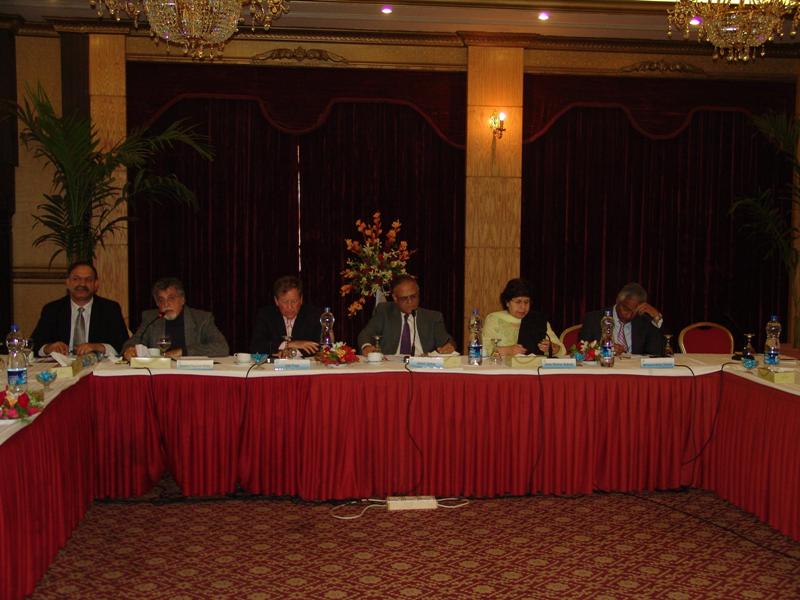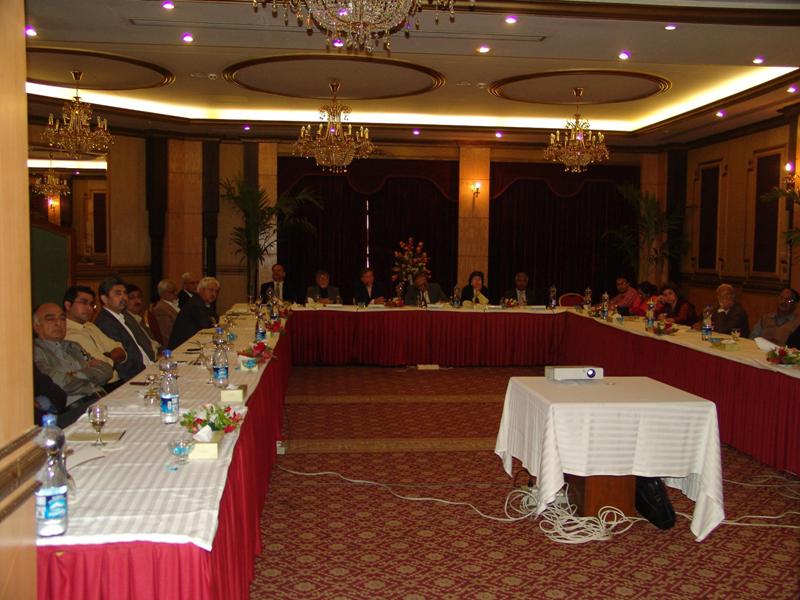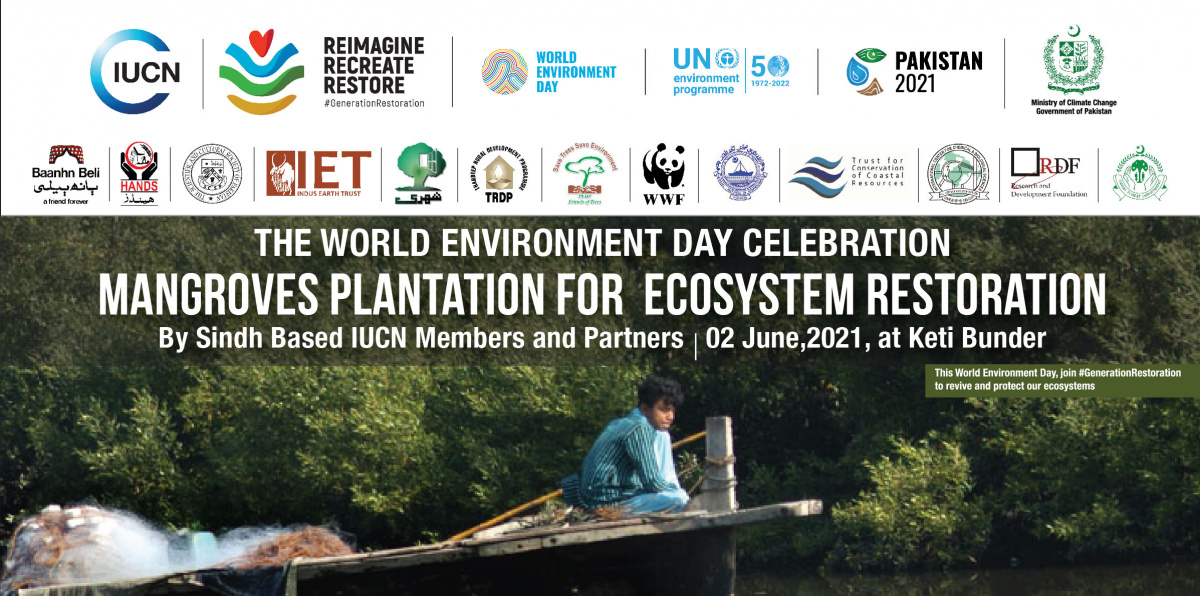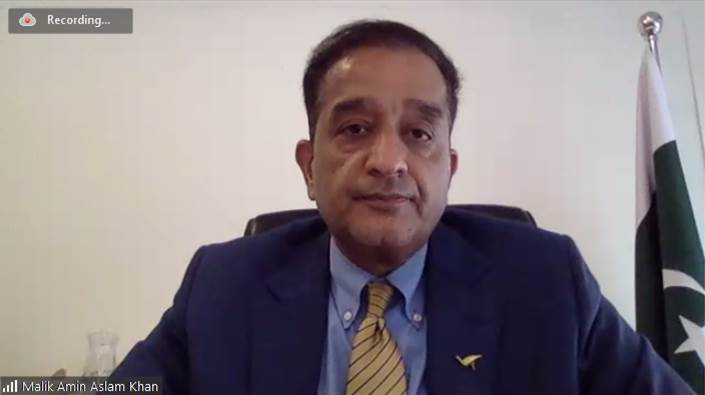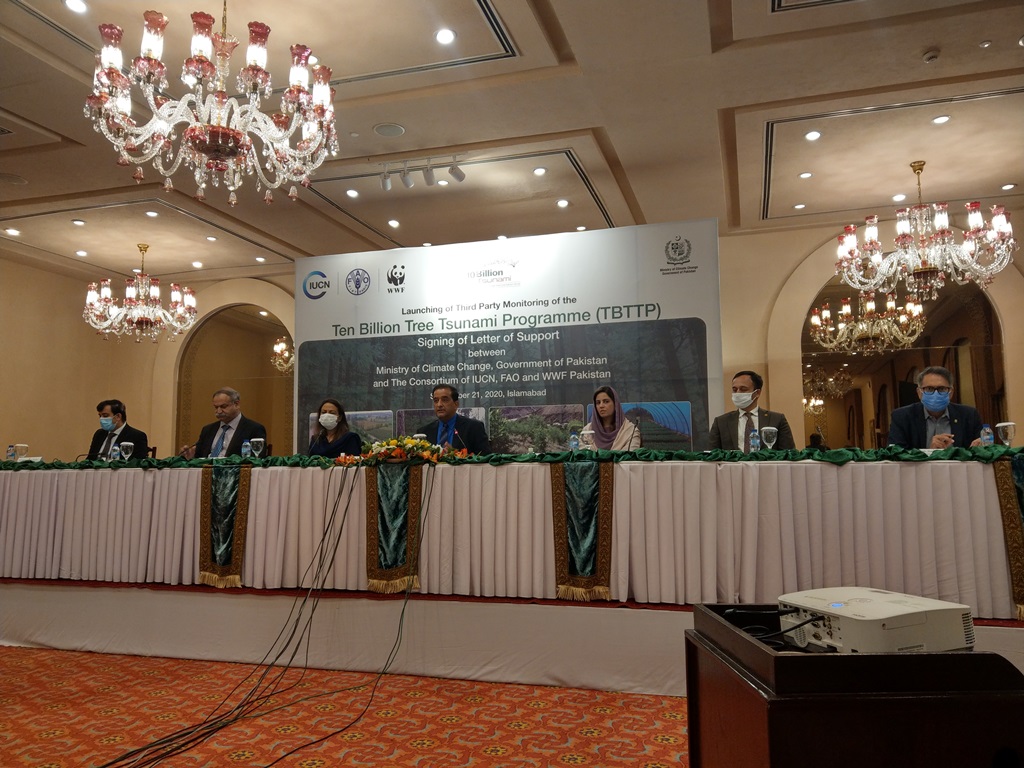Renewable Energy Cheaper in the Long Run, says Carl Pope – a world renowned expert on Renewable Energy
IUCN Pakistan organised a briefing on the Renewable Energy today at a local hotel in Karachi. The briefing was given by Mr. Carl Pope, who is a world renowend expert on renewable energy. Mr. Carl is former Executive Director of the Sierra Club and has regularly contributed for the Huffington Post. The event was attended by a large number of participants from the development as well as business sector.
During the briefing, Mr. Carl Pope shared comparative figures as to how the cost of coal, a major fossil fuel have soared in the recent years. According to him, the cost of electric grids is increasing over time with escalating cost of copper, a major raw material, making a case for focussing on renewable energy options. He was of the view that the demand for coal is expected to rise in the world markets, mainly because growing economies like India and China have constructed more coal plants than they can run. This lack of supply will make coal even more expensive, hence the need of the hour is to switch to renewable energy. He mentioned that the good news is that the price of renewables like solar and LED lights has declined in the past few years in comparison.
It is estimated that presently over 1.3 billion people in the world live without electricity and 1 billion people will remain without electricity until 2030 if the switch to alternatives doesn’t happen. Out of this one billion, approximately 700 million are resident of South Asia.
He said that the key is making it economical for the communities to bear the upfront cost of renewable products like solar panels, wind turbines etc. He cited the examples of “Leasing or Renting”, where communities pay monthly amounts, over an agreed fixed term or progressive ownership, where the unit ownership is transferred to the customer after the final amount has been paid. He also suggested the widely used model of “Pay as you go” which can now be accomplished though mobile phone payment mechanisms.
He was of the view that Pakistan has huge potential to develop renewable energy projects, since it is the third largest off-grid population after India and Bangladesh and has excellent solar, bio-mass, micro-hydro opportunities coupled with centralized landowning, which could make credit guarantees easier. In Pakistan, electricity crisis is severe and destabilizing and there is an acute need to cut down on electricity generation costs. Due to this energy crisis, the country has suffered huge losses, making hundreds and thousands of people jobless.
Mr. Mir Hussain Ali, Secretary Environment and Alternate Energy Department, Government of Sindh talked about several projects that the government is currently working on. Talking about the opportunities in the wind corridor, he said, that the government is working on about 40 projects with various investors with total generation capacity of 2000 MW in the next two years. This will allow the electrification of about 120 schools in rural Sindh. The government is also supplying solar stoves and working on a biogas project worth 200 million rupees. In Mirpurkhas, Solar Water Pumping Stations have been installed to meet the electricity crunch. He talked about having immense potential of biogas at the Cattle Colony in Karachi and prospects in coastal areas of Pakistan in lieu of wind related projects. He said that Renewable Energy projects often don’t get a green light in public sector because of the initial costs.
In her welcome remarks, Ms. Aban Marker Kabraji said that according to the estimations Pakistan is amongst the top 10 most vulnerable countries affected by the climate change. She said that there is need to have a platform to bring together all the stakeholders to debate and discuss the benefits of the renewable energy and to find sustainble soluitons to the energy crisis being faced by the country.
While sharing his experience, Mr. Shahid Sayeed Khan, Chairperson, National Committee of the IUCN Members, talked about training the communities to operate and handle the equipment, like the solar panels. He said that often an important aspect of windmill or solar panel is not the installation, but the sustainability of the equipment and training of communities in taking care of it.
In the concluding remarks, Mr. Javed Jabbar, former IUCN global Vice President emphasised on creating awareness amongst the media and the public on the issues related to renewable energy and its benefits. Mr. Jabbar was of the view that the potential of hydel power generation in the country is much more than what is being harnessed due to administrative and political reasons.
Mr. Mahmood Akhtar Cheema, Acting Country Representative, IUCN Pakistan shared IUCN’s contribution of hydel powers projects in Northern Areas in collaboration with the communities. These hydel power stations are also environment friendly.
Mr. Shamsul Haq Memon, Adviser, Sindh Coastal Development Authority also spoke on this occasion.
For more information or to set up interviews, please contact:
George Sadiq,
Union Development Focal Point
Country Office. IUCN-Pakistan
1, Bath Island Road, Clifton, Karachi.
Phone: 021-35861540-2, Fax: 021-35861448
email address: george.sadiq@iucn.org
